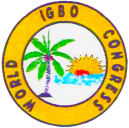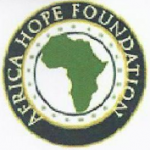Human Rights
Curiously and unlike their Hausa-Fulani counterparts of Northern Nigeria who have ethnic cross-over into neighboring Niger, Chad, Northern Cameroon and other parts of the Sahel region, or the Yoruba of Western Nigeria who share ethnic kinship with Benin Republic and other parts of Sub-Saharan Africa, the Igbo people primarily inhabit the Southeastern part of Nigeria. They are widely travelled, economic adventurists, but invariably return to their Eastern Nigeria home after elaborate trading and related activities in Nigeria and elsewhere in the Diaspora.
A submission by Ekwe Nche, a pro-Biafra group, describes the Ibos as “fanatically democratic and republican in outlook with Christian population and leadership, and exuberantly dynamic.” With the Ibos in Eastern Nigeria are the Ibibios and Ijaws who share the same political, economic, cultural and social structures. (Genocide Papers, Pt. 1 By Ekwe Nche, Committee on Genocide, n.d.)
THE REALITY OF BOKO HARAM: ANOTHER CHAPTER IN THE SPIRAL KILLING OF THE IGBO
Terrorist activities of the extremist militant group known as Boko Haram is ongoing in Nigeria and has made certain parts in the northern section of the country almost unliveable. While full understanding of the features and ramifications of this criminal movement is for the future, its pattern is clearly established. As reported in the Washington Post of June 10, 2013 by Sudarsan Raghavan, since 2009, Boko Haram militants have attacked churches, mosques, police stations and government buildings across northern Nigeria, killing an estimated 3,000 people in more than 700 attacks. During the past few months, hundreds more have died as the militants have launched bold incursions into small towns and villages, prompting retaliatory attacks by security forces. The pattern shows these Boko Haram’s preferred targets are mostly places where persons of Igbo ethnicity predominate. The particular way the Boko Haram terrorism is killing hundreds and maiming and impoverishing thousands of Ndi-Igbo, it must also be seen for what it is, another toxic layer in the historically pervasive persecution of the Igbo in Nigeria. It is part of the ugly Igbo experience in Nigeria since 1945 that the Igbo and all decent people of the world must rally to put an end to.
Boko Haram is considered a major potential terrorist threat affecting Nigeria and other countries, and U.S. officials believe it is potentially allied with Al Qaeda. U.S. Africa Command (AFRICOM) Commander General Carter F. Ham stated in September 2011 that three African terrorist groups – Al-Shabaab of Somalia, Al Qaeda in the Islamic Maghreb across the Sahel region, and Boko Haram – “have very explicitly and publicly voiced an intent to target Westerners, and the U.S. specifically” and that he was concerned with “the voiced intent of the three organizations to more closely collaborate and synchronize their efforts.”
Although Boko Haram could be looked at from the global point of view as a terrorist organization of global import, evidence on the ground show that it fits into the trend of religious and political violence usually perpetrated against the Igbo. It has been shown that over 71% amounting to 2,143 of the 3,000 deaths in the hands of Boko Haram are the Igbo. The said trend could be seen from the chronology below:
1945 – Organized Igbo massacre in Jos
1953 – Organized Igbo massacre in Kano
1966 (July and Sept) – Mass Igbo slaughter in Northern Nigeria
1967-1970 – The Nigeria civil war that killed 2 to 3 million Igbo mostly through starvation
1980 – Organized Igbo massacres in Kano
1982 – Organized Igbo massacre Maiduguri
1984 – Organized Igbo massacre in Yola
1985 – Organized Igbo massacre in Gombe
1986 – Organized Igbo massacre in Kaduna
1991 – Organized Igbo massacre in Bauchi
1993 – Organized Igbo massacre in Funtua
1994 – Organized Igbo massacre in Kano
2000 – Organized Igbo massacre in Damboa
2005 – The Apo 6 massacre of Ndi-Igbo by Federal Nigerian police personnel
2009 - Maiduguri, Bauchi, Potiskum, Wudil a 600 Igbo killed between 26 and 29 July; among Christians for refusing to convert to Islam
2010 - Jos massacre of the Igbo
2011 – Organized brutal massacre of the Igbo in Jos
2013 – Organized bombing of Igbo coach station and killing of the Igbo in Kano
The very graphic photos of the wreckage unleashed by Boko Haram have not been included unless requested. Here are glimpses of the terror. Frome left to right are 1. Armed Boko Haram terrorists and Jihadists. Unarmed Igbo don’t stand a chance. 2. Bombed out Igbo businesses in Kano and 3. Regina Luka who lost her husband and two children, ages 2 and 4, Feb. 21 2012 attack by Boko Haram assailants in Jos Plateau state. (Morning Star News photo)
A SAMPLE FROM MUBI
Mubi is a town in Adamawa state, northern Nigeria. The major tribes are Fulanis from Digil. The Igbo live here as they do in all parts of Nigeria where they do business, providing goods and services wherever they live. They constitute a minimum of 15% of the population of such places and almost 100% in the Igbo homelands of south-eastern Nigeria. They are also predominantly Christians, planting churches wherever they live and also congregating in “town halls” for social events. Because of their business acumen, they are usually very successful and are easy targets of envious neighbors. Consequently, they must bear the brunt of anger in every situation whether or not they are involved. In view of the said characteristics, the attack of Boko Haram or any extreme Islamic sect directed against churches, schools, transport infrastructure, markets, super stores etc. are invariably directed against the Igbo.
Because Mubi is in the North, it is very easy to not see the link to the Igbo. Here is a sample of the mayhem that was unleashed against the Igbo in Mubi. Over 40 14 Igbo and Christian traders were killed in Mubi, Adamawa state were by heavily armed Boko Haram terrorists. They shot and killed the Igbo standing at the gate of the Adazi town hall meeting where they had gathered to plan the transportation of the corpse of one of them, Simeon Asor, killed the previous day to Igbo land.
Some of the victims shown in the photos below are Sunday Okoye, Bede Aniagbado, Uchenna Okpala, Onwukike Amechi, John Obiakonwa, Ugochukwu Ezenwekwe and Patrick Aghachi who was an only son. His only sister is married but their parents are dead.
Aghachi was also married and had children. Obinna Okoye was a secondary school student. Ukamaka Aforka, a mother and wife of Osita Aforka was killed with her husband in the hall. The other was Job Mgbemena.
This revelation came from one of the survivors of the killing, Mike who narrowly escaped the carnage. Obi who is now in his home town of Adazi, Awka, Anambra State, like many others who ran away from north also narrated how some of his town people in North East of the country left the zone for their homelands.
The Federal Government of Nigeria has mostly sounded incapable of handling the situation. It has not stopped the killing of the Igbo in the hands of Boko Haram nor did it do so in the Igbo-killing cycles before now. It has not done anything to protect them. It has not done anything to rehabilitate those wounded and/or dislodged by the attacks. Worse still, it is considering amnesty for the perpetrators while doing nothing for the victims.
Ohanaeze, the apex Igbo organization after the latest attack on March 18, 2013 in Kano in which Boko Haram killed over 145 Igbo and maimed hundreds others at a luxury bus station, is convinced that this is a planned JIHAD on non-natives in Kano, particularly, the Igbo. See the three photos below showed arrayed luxury buses completely burnt as well as burning automobiles. Security report indicates that the Islamic terrorist group has other plans to invade Sabon Gari Kano, an enclave pre-dominantly dominated by the Igbo. The Igbo are known to be the major luxury bus operators and do have loading stations throughout Nigeria metropolises which makes them targets.
Invariably, these mass killings of the Igbo have been for no other reason than their Igbo identity. In some of these killings, perpetrated by Muslims in Northern Nigeria, the cited excuses are often not for wrongdoing by Igbo persons but because someone in a distant and remote shores of the world “insulted the Prophet Mohammed” or an artist much further away in Southern California “took Allah’s name in vain”. Such are the curious excuses! In other words, any excuse to massacre the Igbo is enough to justify their wanton killing en masse, and is often accepted by the Nigerian state and the larger community of nations, none of which ever ask the critical questions. Why are the Igbo targeted for mass killing without anyone rising to their defence? When we say anyone we mean:
- The Nigerian State that has the jurisdiction over all Igbo as well as all Nigerians and consequently owes it to them to provide the barest of protection for them?
- Why has the conscientious world not seen or done anything about this unjustifiable inhumanity to the Igbo whose only crime is that they are Igbo and that they want to peacefully go about their business everywhere in their country, Nigeria?
- When will this cycle of killings stop?
- When will the world come to their rescue in a country they have paid the utmost sacrifice to bring independence to and keep together?
The World Igbo Congress is, therefore, left with no choice than to bring the plight of the hapless Igbo to the attention of the world through the UN-HRC. This is because of its concern that the inherent violations of human rights of the Igbo in the recent waves of Boko Haram attacks are disturbingly consistent with the recurring killing of the Igbo in Nigeria since 1945 as shown in the following selected chronicle above. The reality of this situation is that if unchecked, the cycle will continue with greater vehemence and audacity.
OUR PRAYER:
Upon the premises herein provided, the World Igbo Congress, the umbrella organization of Ndi-Igbo in the Diaspora prays the UNHRC to:
1. Organize the appropriate forum to examine the ramifications of the cycle of killing of the Igbo of Eastern Nigerian herein described.
2. Duly appoint a neutral body to properly investigate the magnitude of the killing cycles of the Igbo including those that occurred during the civil war waged against them by Nigeria between June 1967 and January 1970. This is what has been done in other instances of human rights violations
3. Investigate the systematic pattern of and recurring killing of Ndi-Igbo in Nigeria beginning from the early days of our becoming part of the Nigerian federation to this day.
4. Investigate the ongoing terrorizing of the Igb by the Boko Haram, which is adding another despicable layer to the pattern of killing of the Igbo and to ascertain the extent to which these activities have targeted or disproportionately killed, maimed and impoverished Ndi-Igbo.
5. Use all powers and resources at its disposal to demand and ensure maximum cooperation by the government of the Federal Republic of Nigeria and complicit parties to accomplish all of the actions requested herein.
6. To the extent that the UNHRC does not have the power, authority or jurisdiction to perform any of the actions herein prayed for, to use its good office to recommend appropriate action and forward same to the appropriate United Nations agency, institution or other international entity.
IV. Exhaustion of domestic remedies
1- Steps taken by or on behalf of the alleged victim(s) to exhaust domestic remedies– please provide details on the procedures which have been pursued, including recourse to the courts and other public authorities as well as national human rights institutions[1], the claims made, at which times, and what the outcome was:
Since the end of the civil war in Nigeria (January 15, 1970), the Igbo has suffered from post war traumatic syndrome that has negatively impacted their psyche and impeded their efforts to present a united front in their own defence. This unfortunate situation is exacerbated by the caught-throat ethnically-configured and religiously-charged political atmosphere that has relegated them from real socio-political decisions in Nigeria. Consequently, they have become hapless pawns in Nigeria’s ethnic and religious jostling. For this reason most of the efforts occur at the end of each cycle of killing and the Igbo always adopt a peaceful and palliative approach in the name of the unity of Nigeria. The Igbo, through their various organizations, have protested, issued appeals, and made presentations at panels in the hope that their ethnic compatriots and indeed the Federal Government will be conscientious and come to the rescue of the people. Such groups include:
- Civil society groups such as Intersociety which wrote the president in January 2012 http://nigeriamasterweb.com/blog/index.php/2012/01/19/intersociety-writes-jonathan-on-the
- The Governors of the south-eastern administrative zone comprising Abia, Anambra, Ebonyi, Enugu and Imo with the support of the contiguous states of Delta and Rivers in the South-South administrative zones that have a preponderant Igbo population. http://universalreporters247.blogspot.com/2013/05/south-east-governors-urges-to-convene.html
- Christian organizations such as the Christian Association of Nigeria (CAN). http://cannigeria.org/christians-association-of-nigeria-can-gives-final-warning-on-boko-haram-killings/
- Apex Igbo Organization, Ohanaeze Ndi Igbo that represents the Igbo at home and in the Diaspora
http://202.2.95.75/minutes/communique/communique-29th-april-2012/
http://mynigeriantodaynews.blogspot.com/2013/06/ohanaeze-petitions-govt-over-herdsmen.html
- Traditional rulers of Igbo land. Below is an excerpt of a meeting the traditional rulers had with president Goodluck Jonathan to specifically address Boko Haram debacle: http://thewillnigeria.com/breaking/20436.html
South East Monarchs Task FG on Protection of Igbos 29/04/2013 13:02:00 THEWILL
PRESIDENT JONATHAN (R) SHAKING HANDS WITH CHAIRMAN SOUTH EAST COUNCIL OF TRADITIONAL RULERS, EZE CLETUS ILOMUANYA WHO LED THE SOUTH-EAST COUNCIL OF TRADITIONAL RULERS TO THE PRESIDENTIOAL VILLA ABUJA. APRIL 29, 2013
SAN FRANCISCO, April 29, (THEWILL) – The South East Council of Traditional Rulers on Monday called on the Federal Government to protect all Igbos against what it described as the wanton killing of their kinsmen in various parts of the country.
Rising from a recent meeting of the council, its Chairman, Eze Cletus I. Ilomuanya, the Obi of Obinugwu, Monday, led other members of the council to present an eight-page address to President Goodluck Jonathan, as they warned that the blood of their kinsmen should no longer be shed again.
Other monarchs in the entourage included Eze Bar. C. A. Osuebi, Eshimotee of Azara-Obiofo Kingdom, Imo state; Igwe Osisi Itodo-Agu, Chairman Enugu Council of Traditional Rulers and HRM Eze J. Nzenwata Mbakwe, Egwu Uga 1 of Umuosu Oaiugu Nkwoegwu autonomous community, Umuahia North LGA; among others.
While making their demands, they promised to support President Jonathan and his administration in its efforts to address the issue of insecurity occasioned by the activities of Boko Haram.
Their address signed by the Chairman, Eze Ilomuanya, said: “Mr President can bear us witness that the blood of innocent Igbos has flown enough in Nigeria through tribal and religious attacks and no government has said anything about it.
“The Igbos have also lost much properties and other valuables to extremists in Nigeria, still we all are watching. It is therefore our wish to state in strong terms that enough is enough. One can start to imagine why Boko Haram sect has chosen to bomb Churches, markets, motor parks and other places where the Igbos converge in their large numbers, especially in the Northern Nigeria?
“We therefore call on the Federal Government to take necessary measures to offer the Igbos the deserved security and protection in Nigeria. Nigeria belongs to all of us and there is no religion or tribe that is superior to others.”
VOICELESS AND DYING UNHERALDED
Because of the degradation of the political will of the Igbo as a result of the civil war, they are essentially voiceless and desperately cries out to the world for help. This voicelessness is captured in the link next. Despite their travels, there has not been any concerted effort to address the killing cycles of the Igbo which comes from time to time under different guises. Regardless, of all these, the Igbo remain peaceful and look forward to a fully integrated Nigeria.
[1] National human rights institutions, established and operating under the Principles Relating to the Status of National Institutions (the Paris Principles), in particular in regard to quasi-judicial competence, may serve as effective means of addressing individual human rights violations.
Copyright World Igbo Congress 2015 by extraCoding









Follow Us!
World Igbo Congress is promoting social interactions and connections. Please use our array of social media icons to reach your loved ones